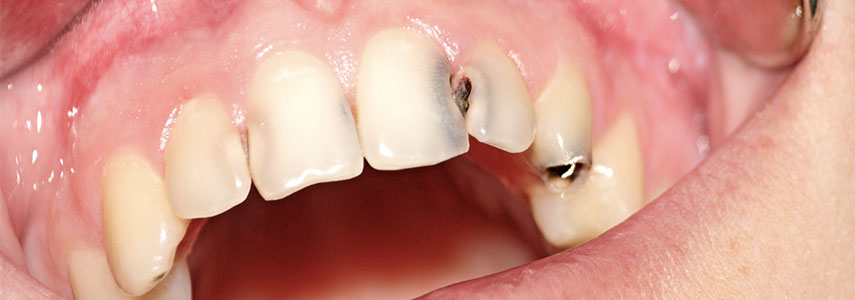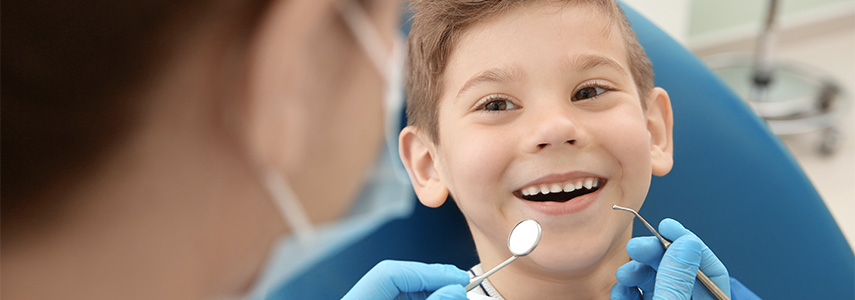Early childhood caries (ECC) is the most common chronic childhood disease, with nearly 1.8 billion new cases annually worldwide. ECC predominantly affects low-income preschoolers, with detrimental short- and long-term effects on their health and quality of life.
Clinical evidence shows that caries is reversible if detected and addressed in its early stages, but sadly for children living in low-income families, who often have great difficulty accessing pediatric dental services, dental caries is often diagnosed in an advanced stage when extensive restorative treatment is now necessary. Given that even low-income families now all possess an interactive and Internet-enabled mobile phone, mobile health tools such as smartphone apps are promising in achieving patient-led early diagnosis and ECC risk control.
App against caries, type of research and methods of analysis

In a paper, published in JMIR research protocols in October 2021, the authors proposed a protocol to test the usefulness of an AI-based smartphone app, AICaries, to be used by parents for caries detection dental in their children. AICaries is an app that uses photos of children’s teeth taken by parents’ smartphones to provide an interactive caries risk assessment and personalized education on reducing the risk of ECC in children. This AICaries study evaluates app feedback and usefulness, app flow, and whether parents are able to easily take pictures of their children’s teeth on their own. With this protocol, the authors set themselves the objective of evaluating the number and quality of dental images taken by parents for their children and the satisfaction of the parents themselves.
Here are the procedures proposed in the protocol by the authors
- Phase 1: Conduct 10 in-person smartphone utility tests, lasting 60 minutes, in which the parent will be asked to bring the child with him to the study site (URMC-EIOH), providing for a quiet room equipped with Wi-Fi and video recording and, in which, a short survey must be completed which includes the age of the parent and child, gender of the parent, level of education, frequency of use of smartphone apps, and use of the phone for photography . The child will then be checked and examined. Before the test, we will briefly demonstrate how to use the anti-caries app. A thought-out-loud strategy will be used to give feedback when testing the app. The parent will then use the app by thinking aloud throughout the whole process. Assistance will only be offered if the parent encounters a clear obstacle. At the end of the session, the parent will be asked for suggestions for improving the procedure. Each session will be videotaped with the verbal permission of the participants. Each video recording will be subsequently analyzed and evaluated.
- Phase 2: This phase involves parents interacting with the AICaries app in their natural environment, including 32 pairs of parents and their young children, for a total of 64 eligible participants, involving two in-person study sessions. In the first in-person session, the AICaries app will be installed on participants’ smartphones, after which participants will test the app for the next 2 weeks and take photographic images of their child’s front teeth only (no facial features) and send them to the group. study via SMS text messages. The second in-person study session will take place after the 2 weeks of app testing; participants will come to the study site, complete a short in-person survey regarding ease of use and quality of the teaching aid, ease of learning to take proper photographs, and overall satisfaction. App usage metrics will include the quantity and quality of pictures of children’s teeth taken by parents.
Results
The study was funded by the National Institute of Dental and Craniofacial Research, USA. This study received institutional review board approval and was launched in August 2021. Data collection and analysis should be completed by March 2022 and June 2022 respectively and we will provide you with the results.
Conclusions
Using the AICaries Smartphone App, parents, especially those from low-income families, can use their ordinary smartphones to take pictures of their children’s teeth and easily detect early-stage ECC at home, and as a result can actively seek treatment for their children in an early, reversible stage of ECC.
Clinical implications
Using AICaries, parents can also gain essential knowledge about reducing their children’s caries risk. Data from this study will support a future clinical trial evaluating the real-world impact of using this smartphone app on early detection and prevention of ECC among children. This app will be especially useful for low-income families who find it difficult to access regular dental checkups.
















